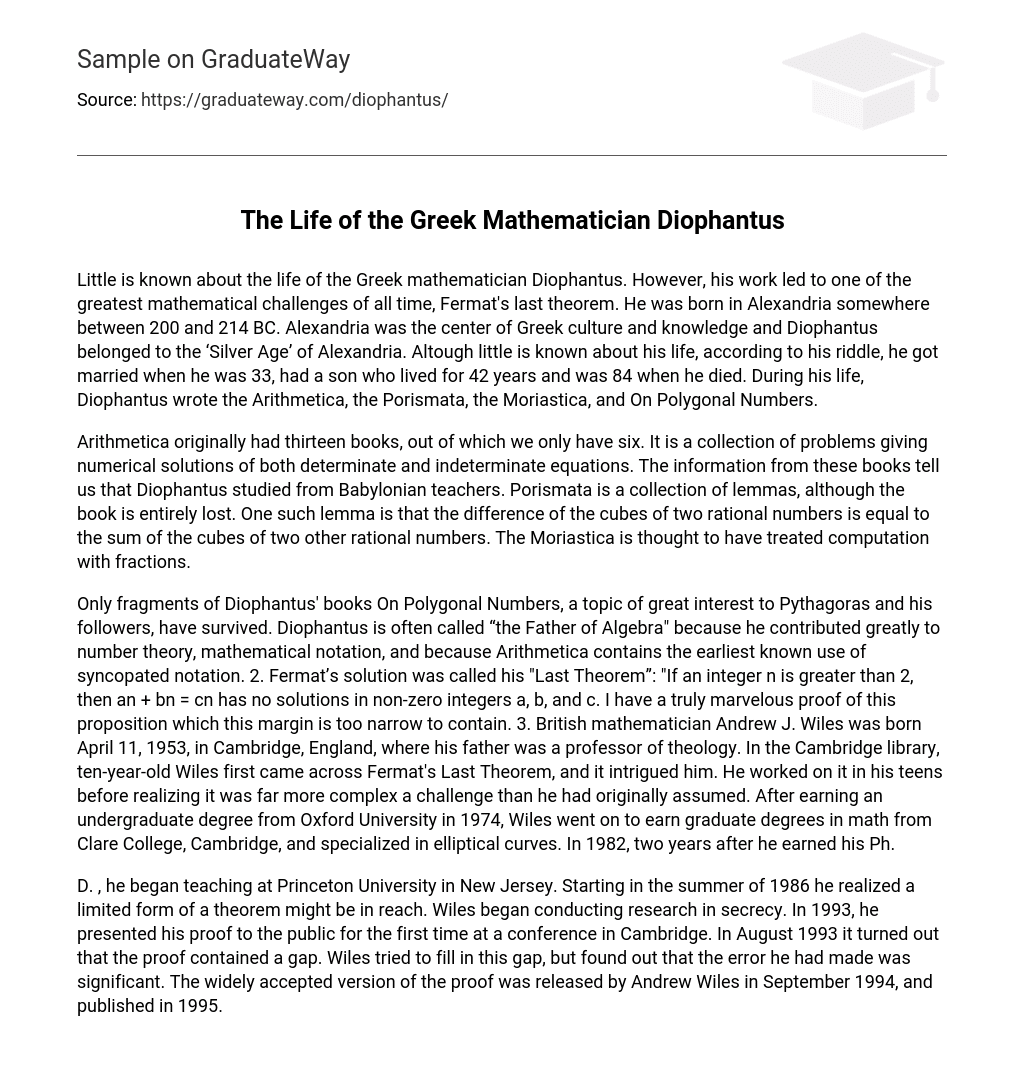The life of the Greek mathematician Diophantus is not well-documented, but his contributions are significant. One of his achievements led to Fermat’s last theorem. Diophantus was born in Alexandria, between 200 and 214 BC, a major center of Greek culture and knowledge. He belonged to the ‘Silver Age’ of Alexandria. Despite limited information about his life, a riddle attributed to him reveals that he married at 33 years old, had a son who lived for 42 years, and died at 84 years old. Diophantus wrote several important works including Arithmetica, Porismata, Moriastica, and On Polygonal Numbers.
Arithmetica initially consisted of thirteen books, but only six of them have survived. It contains a compilation of problems that provide numerical solutions for both determinate and indeterminate equations. The available books indicate that Diophantus received education from Babylonian instructors. Porismata, a collection of lemmas, unfortunately, no longer exists in its entirety. One of these lemmas states that the difference between the cubes of two rational numbers is equal to the sum of the cubes of two additional rational numbers. Moriastica is believed to have focused on fractional computation.
The books On Polygonal Numbers by Diophantus, a subject that fascinated Pythagoras and his followers, have survived. Diophantus is often called “the Father of Algebra” for his significant contributions to number theory and mathematical notation. His notable work Arithmetica includes the earliest use of syncopated notation.
Fermat’s solution, also known as his “Last Theorem,” states that there are no solutions in non-zero integers (a, b, and c) for the equation an + bn = cn if n is greater than 2. Fermat claimed to possess a remarkable proof for this theorem but did not record it, citing its inability to fit within the margin of his book.
Andrew J. Wiles, a British mathematician born on April 11, 1953 in Cambridge, England, encountered Fermat’s Last Theorem at the Cambridge library when he was just ten years old. The theorem mesmerized him and motivated him to embark on its study during his teenage years. However, he soon realized that the challenge was more complex than he initially assumed.
After completing his undergraduate degree at Oxford University in 1974 , Wiles pursued graduate studies in mathematics at Clare College , Cambridge . His area of specialization was elliptical curves . In 1982 , two years after earning his Ph.D., Wiles began tackling Fermat’s Last Theorem.
In 1986, mathematician Andrew Wiles joined Princeton University in New Jersey. It was during this time that Wiles realized he may be able to achieve a limited form of a theorem. He conducted his research secretly and did not present his proof publicly until 1993 at a conference in Cambridge. However, in August of that same year, it was discovered that there was an error in the proof. Despite attempts to fill the gap, Wiles acknowledged it as a significant mistake. Ultimately, in September 1994, Andrew Wiles released an accepted version of the proof which was subsequently published in 1995.





